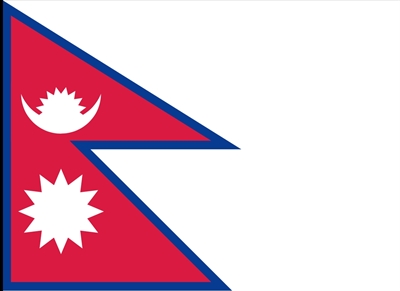Nepal - Human Rights Council - Violence Against Women - March 2015
Country: Nepal
Type: Intl Mechanism Submission
Issues: Gender-Based Violence, International Advocacy, Policing, Women's Rights
Mechanism: UN Universal Periodic Review
Report Type: Stakeholder Report
The Advocates for Human Rights submitted a stakeholder report to the UN Human Rights Council for the November 2015 Universal Periodic Review of Nepal. The stakeholder report discusses Nepal’s compliance with its international human rights obligations in the context of domestic violence. Although Nepal passed its Domestic Violence Act in 2009, the law does not adequately protect victims of domestic violence. The government has also not devoted sufficient resources or training to implementing the law. The government should work both to strengthen the existing Domestic Violence Act through legal reform and to provide the funding and training necessary for effective implementation.
Violence against women is a widespread problem in Nepal. The 2011 Nepal Demographic and Health Survey found that 22% of women age 15-49 reported experiencing physical violence at some point since the age of 15. A 2012 survey of 900 women in rural areas of Nepal found that 48% experienced violence at some point in their lives and 28% had experienced violence in the previous 12 months. The study also found that women in Nepal face significant obstacles when seeking help after suffering violence, including fear of further violence, long distance to services, and lack of knowledge about the law and available services.
During its first Universal Periodic Review in 2011, Nepal accepted several recommendations relating to gender-based violence. The government of Nepal has developed two national action plans to combat violence against women: the National Action Plan Against Gender-based Violence and the Sex and Gender Based Violence and Gender Empowerment Strategy and Work Plan. The government of Nepal has also established a gender-based violence unit in the Prime Minister’s Office, and the Ministry of Health and Population has set up 16 hospital-based One-Stop Crisis Management Centers to help female victims of gender based-violence.
Although the 2009 Domestic Violence Act established several complaint mechanisms, officials and advocates report that they have received very little training and do not have the resources to effectively carry out their responsibilities. In a 2014 study, police officials interviewed noted that there are “very limited” resources for conducting domestic violence training at the district levels, and they rely on NGOs and the UN for resources. Court officials have also not received systematic training on implementation of the Domestic Violence Act. The National Women’s Commission’s legal aid unit, which accepts domestic violence complaints, also lacks the human resources and physical infrastructure to address all of the cases. Section 11 of the Domestic Violence Act provides that the Government of Nepal “may establish” service centers for the purpose of “immediate protection” and “separate accommodation” of the victim. But so far the government has established them in only 17 out of 75 districts, and they are not adequately equipped to serve victims of domestic violence.




